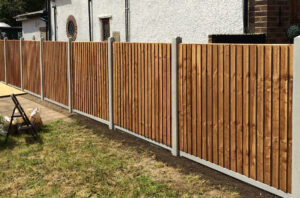If you are in need of fencing repair or installation, start your search by getting in touch with local realtors and homeowners associations. These organizations can provide valuable information about planned development in the area and can also help you network within the community. Homeowners associations and realtors’ offices are also great places to leave your business card. You can also reach out to local farmers and ranchers, who often need a fence repaired or installed. Or you can also visit https://fencingsummerville.com/ for more information.
If you own a fence business, you should be insured against claims arising from your work. A fence may cause an accident or injury, and if you are not insured, you could face large legal bills or even jail time. You may be unaware that a good policy will protect you against these risks. A good policy covers the safety of your property, employees, and clients.
There are many different types of general liability insurance that can cover your business. You may want to consider errors and omissions insurance, which can cover your business if a customer is injured because of your work. This type of insurance can also cover the expenses related to defending yourself against allegations of negligence. Another option for fencing contractors is workers’ compensation insurance, which covers injured employees and the business itself. It is required by most states for businesses that employ workers.
The cost of insurance for fence contractors varies widely, and you should shop around for the right policy. Some companies offer insurance packages for as little as $725 per year for $2 million of coverage. However, your costs will depend on several factors, including the size of your company and your annual gross receipts.
In addition to general liability insurance, a fence contractor should also consider purchasing business interruption insurance, which provides coverage for lost income and products. Though a fence contractor’s work is typically centered on the sale of fence products and installation services, there are still unforeseen risks. For example, a fence contractor may accidentally damage someone’s property while working on a customer’s property. This insurance will cover all of the costs associated with repairing or replacing the property, as well as any legal fees incurred.
The risks associated with a fence installation business are high. If you are not careful, a client may sue you for negligence and damages. This insurance will protect your business from any potential lawsuits. It is a good idea to obtain workers’ compensation insurance, too, to protect your employees.
If you are considering fencing your property, you will want to carefully consider the cost of materials. Many materials are not cheap, and some of them require a high degree of maintenance. Wood fences, for example, can be expensive, but they will blend in well with any neighborhood. They are also highly customizable. They can be painted or stained for a more modern look. You can also choose to add finials or latticework to the fence. The cost of a wood fence can range anywhere from $17 to $45 per linear foot.
Another factor in fence costs is labor. It takes time to dig up the ground and place the posts. A contractor will also need to know where utility lines run. In addition, he or she will need to have certain permissions from the local government before you can start construction. You can save money on this step by marking the utility lines on your property and obtaining the necessary permits yourself. Another option is to take down an existing fence to save money. Although this can be difficult and time-consuming, it can save you money in the long run.
Depending on your home’s location and aesthetic, a fence can increase the value of your property. This is because fences can help keep children and pets out of the road, as well as protect your property from uninvited visitors. Adding a fence around your property can add up to 10% to your home’s value. If you are selling your home, you may want to wait until after the sale is complete to add a fence.
The material used for the fence also plays a big role in the cost. While cedar is the cheapest of the two materials, it is not necessarily the best choice for a fence that will be in contact with heavy traffic. Pressure-treated lumber is a better choice for high-traffic areas.
